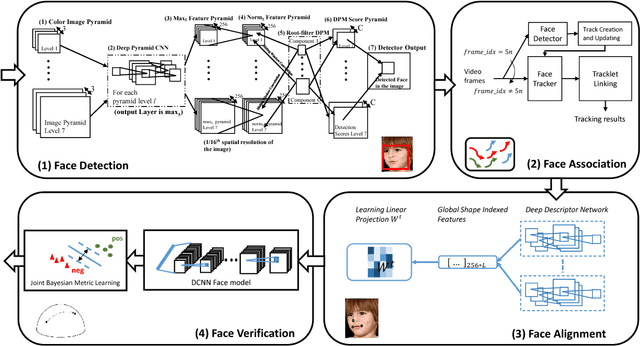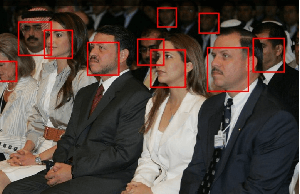Unconstrained Still/Video-Based Face Verification with Deep Convolutional Neural Networks
Paper and Code
Jul 18, 2017



Over the last five years, methods based on Deep Convolutional Neural Networks (DCNNs) have shown impressive performance improvements for object detection and recognition problems. This has been made possible due to the availability of large annotated datasets, a better understanding of the non-linear mapping between input images and class labels as well as the affordability of GPUs. In this paper, we present the design details of a deep learning system for unconstrained face recognition, including modules for face detection, association, alignment and face verification. The quantitative performance evaluation is conducted using the IARPA Janus Benchmark A (IJB-A), the JANUS Challenge Set 2 (JANUS CS2), and the LFW dataset. The IJB-A dataset includes real-world unconstrained faces of 500 subjects with significant pose and illumination variations which are much harder than the Labeled Faces in the Wild (LFW) and Youtube Face (YTF) datasets. JANUS CS2 is the extended version of IJB-A which contains not only all the images/frames of IJB-A but also includes the original videos for evaluating the video-based face verification system. Some open issues regarding DCNNs for face verification problems are then discussed.
 Add to Chrome
Add to Chrome Add to Firefox
Add to Firefox Add to Edge
Add to Edge